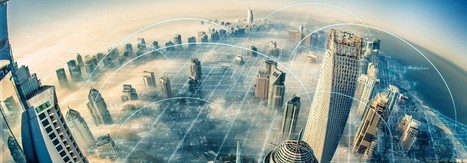Cities are undoubtedly getting larger, especially in developing countries. This increase in size accelerates the consumption of resources and adapting will no longer suffice, they must develop sustainable economic strategies. To achieve this, a strong investment in human capital, social capital, urbanism and ICT infrastructure must be made.
All over Europe start-ups are partnering up with governing bodies to innovate city infrastructure. Among others, this includes the smart use of data acquired by tech companies and by the government, improved mobility, energy efficiency and advanced connectivity, more commonly known as Internet of Things (IoT).
Towards a smarter economy
A smarter economy is a crucial aspect to the Smart City movement. The notion has a broad meaning however Smart Cities Berkeley break it down into three different components; how Smart Cities technologies are changing urban commerce, the Smart City as an economic driver and the economics behind Smart Cities.
There is a lot of buzz at the moment about digitalising our economy, starting with payments. A clear illustration is the recent emergence of bitcoin or more broadly, mobile payments and e-wallets. Furthermore, there is a rise in the use of QR code technology or NFC (near field communication) for point of sale transactions. Indeed, mobile payments are at the heart of improving areas such as mass customisation retail, personalised tourism, enhanced mobility as well as peer to peer interactions. The end-game is to have a solution which digitalises the entire customer experience seamlessly.
Learn more / En savoir plus / Mehr erfahren:
http://www.scoop.it/t/21st-century-learning-and-teaching/?tag=Smart+Cities



 Your new post is loading...
Your new post is loading...








Learn more / En savoir plus / Mehr erfahren:
http://www.scoop.it/t/21st-century-learning-and-teaching/?tag=Smart+Cities